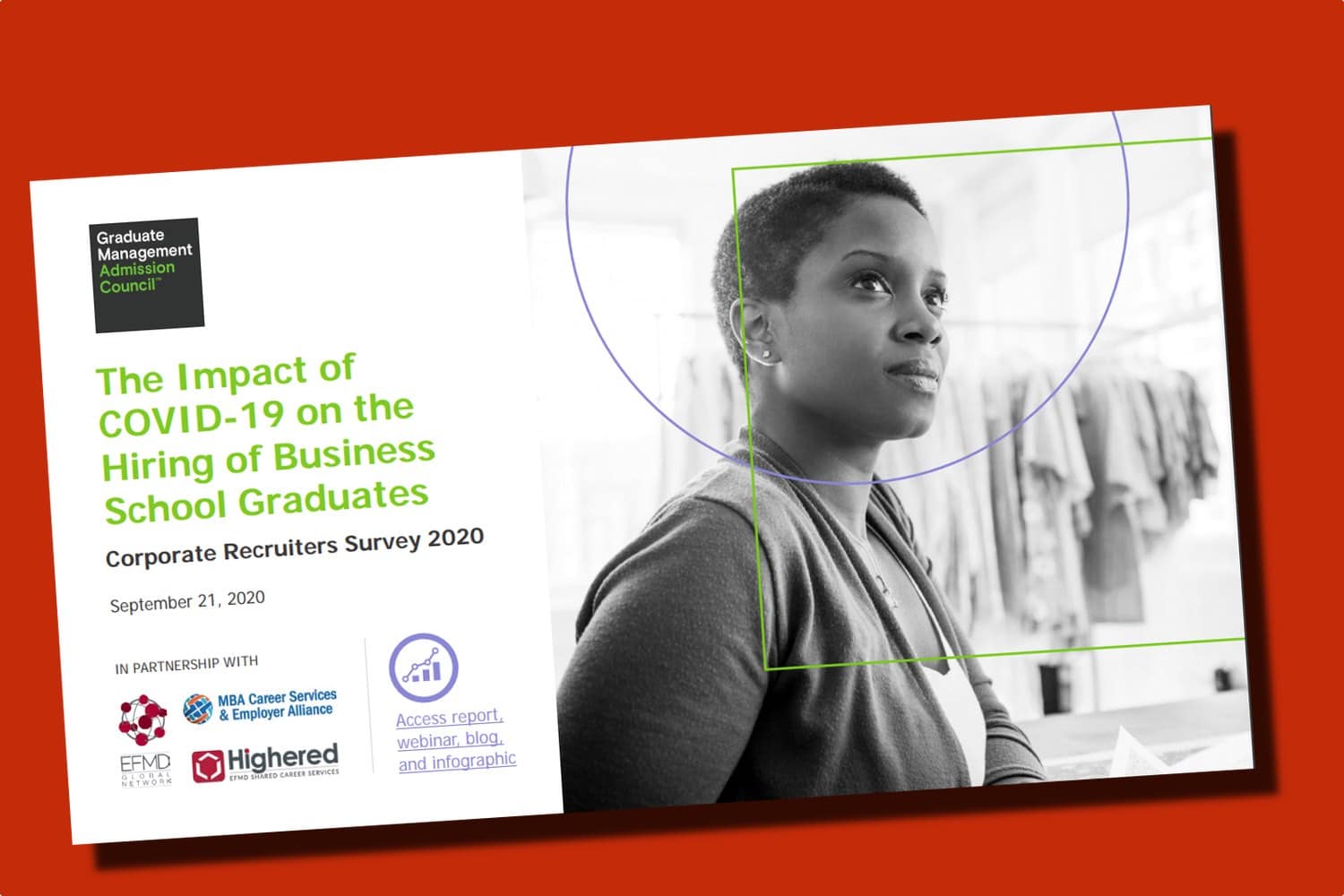MBA graduates continue to command a healthy salary premium in the employment market despite the economic uncertainty and cost pressures bought about by the COVID-19 pandemic that has crippled economies around the world.
The Graduate Management Admission Council (GMAC), a global association of leading graduate business schools, released its annual Corporate Recruiters Survey this week after polling recruiters before and during the pandemic.
GMAC recognised that compensation was under pressure at all levels as companies focus on operational sustainability, and as the demand and supply of talent shifts in favor of employers.
Despite this, most recruiters expressed intent to honor their organisation’s compensation promises, with a minority of respondents saying they will reduce salaries, benefits, or bonuses.
Also, the compensation premium that business management graduates command is holding steady. At $US115,000, the median salary of MBA degree-holders is 75 percent more than those with a bachelor’s degree in pre-COVID sampling.
That figure decreased slightly to $US105,000 amid COVID-19 surveying. The compensation premium is even more apparent for Fortune 100 companies and the big-three industries of hire for MBA graduates—consulting, finance, and technology.
For example, at $US145,000, the median salary of MBAs in the consulting industry is twice that of bachelor’s degree holders as indicated in data collected prior to March 17.
“In sum, responses collected in this year’s Corporate Recruiters Survey suggest that salaries for graduate management talent are relatively less likely to soften in the COVID-19 environment,” GMAC said.
This year’s report was nearing conclusion in March just as the COVID-19 pandemic was shutting down economies around the world. Given the disruption caused by the global pandemic, GMAC initiated additional data collection to expand those results to provide more relevant insights about the economic impacts of COVID-19 across hiring and salary trends.
GMAC gathered data from 712 employers in February 2020, and data from a further 232 employers in June, after the effects of the coronavirus pandemic took hold. Respondents represented a range of industries and geographies with the majority from the United States.
Before COVID-19, 92 per cent of firms expressed intent to hire MBA graduates in 2020, a figure that dipped to 77 per cent during sampling amid COVID-19. However, when asked about hiring plans for 2021 nearly 90 per cent of employers said they plan to hire MBA graduates, a level similar to the rate seen in the pre-COVID sampling.
“When thinking about the skills and experience required to help organizations and industries rebuild after an event like COVID-19, it makes sense that employers are expressing a desire to hire more MBA and business master’s graduates,” said Sangeet Chowfla, president and chief executive officer at GMAC.
“The world was changing rapidly even before the current pandemic and while COVID-19 has brought with it perhaps unprecedented challenges across every sector, b-school classrooms have long been preparing MBA students for a dynamic and often uncertain environment. Employers place a premium on that kind of talent and perspective.”
As the pandemic continues to shake the global economy, disrupting supply chains and shaping the future of work, corporate recruiters’ confidence in the skills and abilities of graduate management talent remains strong.
Before COVID-19, 90 percent of respondents indicated they were highly confident or confident about the ability of business schools to prepare students for success in their organization. That figure held steady at 87 percent in surveying performed this summer, highlighting the attractiveness of MBA degree holders and their ability to perform in times of transition and change.
“Talent in an organization is vital to growth and a firm’s ability to innovate, a reality in any environment,” said Jay Nibbe, GMAC board member and global vice chair for markets at EY. “The skills highlighted in this report represent significant competitive differentiation when it comes to a company’s ability to compete and create value in the marketplace, and they become even more important amid turmoil and constant change.”
Recruiters cited strategic thinking, communication skills, and versatility as the skills they’re most confident in when it comes to a business school’s ability to prepare graduates for success in the workforce. These skills hold steady across the entire report.
One of the more noteworthy shifts when examining skills demand is the ability to navigate the challenges of technological disruption, which was identified by more than two-thirds of employers who responded as becoming more important as a result of COVID-19, followed by strong communication skills.
“GMAC’s research shows that even as the pandemic resets the global economy and job market, the confidence of corporate recruiters in the skills and abilities of graduate management talent is strong,” said Rahul Choudaha, director of Industry Insights at GMAC.
“This aligns with 2021’s robust MBA hiring projections as organizations plan for their recovery in a post-COVID world which demands meta-skills integral to managerial talents such as versatility and strategic thinking.”







